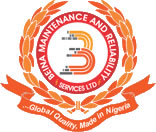ASQ – Six Sigma Black Belt
ASQ – CERTIFIED SIX SIGMA BLACK BELT
The Certified Six Sigma Black Belt is a professional who can explain Six Sigma philosophies and principles, including supporting systems and tools. A Black Belt should demonstrate team leadership, understand team dynamics and assign team member roles and responsibilities.
Black belts have a thorough understanding of all aspects of the define, measure, analyze, improve and control (DMAIC) model in accordance with Six Sigma principles. They have basic knowledge of lean enterprise concepts, are able to identify non-value-added elements and activities and are able to use specific tools.
Note: Six Sigma Black Belt certification requires that you complete at least one Six Sigma project and submit a project affidavit. Review frequently asked questions regarding projects and the affidavit/verification.
Requirements
Here are the experience and exam specifics for the Certified Six Sigma Black Belt.
Work Experience
Six Sigma Black Belt requires two completed projects with signed affidavits or one completed project with signed affidavit and three years of work experience in one or more areas of the Six Sigma Body of Knowledge.
For more information, please see the list of Six Sigma Project Affidavit FAQs. You do not need to be a Certified Six Sigma Green Belt.
Work experience must be in a full time, paid role. Paid intern, co-op or any other course work cannot be applied towards the work experience requirement.
Expectations
These are the minimum expectations of a Certified Six Sigma Black Belt.
I: Organization-wide Planning and Deployment
Will understand how to deploy six sigma within a project.
Will be able to implement tools and techniques to deploy strategic directions for initiatives.
Will understand the roles and responsibilities for six sigma projects and how each group influences project deployment, and will be able to support communications about the project deployment.
Will be able to apply operational change management techniques within their defined scope or domain.
II: Organizational Process Management and Measures
Will be able to define various types of benchmarking.
Will be able to describe various types of performance measures, and select an appropriate financial measure for a given situation and calculate its result.
III: Team Management
Will understand the components and techniques used in managing teams, including time management, planning and decision-making tools, team formation, motivational techniques and factors that demotivate a team, performance evaluation and reward.
Will be able to describe elements that can result in a team’s success.
Will be able to use appropriate techniques to overcome various group dynamics challenges.
IV: Define
Will be able to select data collection methods and collect voice of the customer data, and use customer feedback to determine customer requirements.
Will understand the elements of a project charter (problem statement, scope, goals, etc.) and be able to use various tools to track the project progress.
V: Measure
Will be able to define and use process flow metrics and analysis tools to indicate the performance of a process.
Will be able to develop and implement data collection plans, and use techniques in sampling, data capture, and processing tools.
Will be able to define and describe measurement system analysis tools.
Will apply basic probability concepts, and understand various distributions.
Will be able to calculate statistical and process capability indices.
VI: Analyze
Will be able to analyze the results of correlation and regression analyses.
Will be able to define multivariate tools.
Will be able to perform hypothesis tests for means, variances and proportions and analyze their results.
Will understand the components and concepts for ANOVA, Chi-square, contingency tables, and non-parametric tests.
Will understand the elements and purpose of FMEA and use root cause analysis tools.
Will be able to identify and interpret the 7 classic wastes.
Will be able to use gap analysis tools.
VII: Improve
Will be able to define and apply design of experiments (DOE) principles, and distinguish among the various types of experiments.
Will be able to apply various lean tools and techniques to eliminate waste and reduce cycle time.
Will understand how to implement an improved process and how to analyze and interpret risk studies.
VIII: Control
Will be able to apply, use, and analyze the various statistical process control (SPC) techniques.
Will understand total productive maintenance (TPM) and visual factory concepts.
Will be able to develop control plans and use various tools to maintain and sustain improvements.
IX: Design For Six Sigma (DFSS) Framework and Methodologies
Will understand common DFSS and DFX methodologies, and elements of robust designs.
Body of Knowledge, BoK
The topics in this Body of Knowledge include additional detail in the form of subtext explanations and the cognitive level at which test questions will be written. This information will provide guidance for the candidate preparing to take the exam.
The subtext is not intended to limit the subject matter or be all-inclusive of what might be covered in an exam. It is meant to clarify the type of content to be included in the exam. The descriptor in parentheses at the end of each entry refers to the maximum cognitive level at which the topic will be tested. A complete description of cognitive levels is provided at the end of this document.
Please Note: The Body of Knowledge for certification is affected by new technologies, policies, and the changing dynamics of manufacturing and service industries. Changed versions of the examination based on the current Body of Knowledge are used at each offering.



